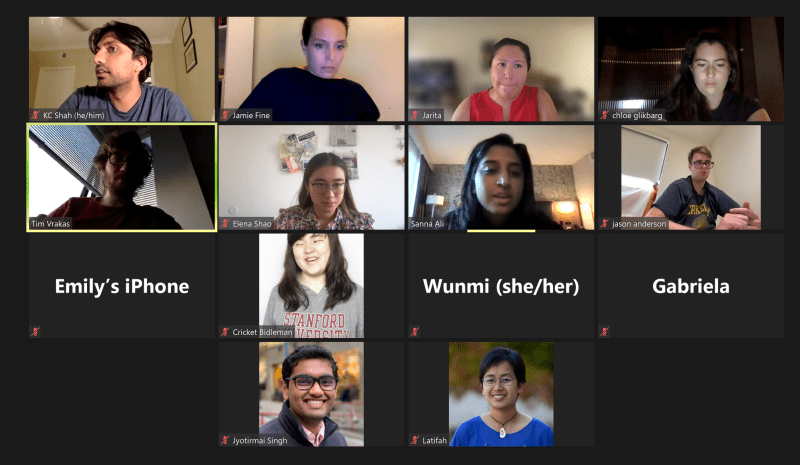The Graduate Student Council (GSC) elected two new councilors — Jason Anderson, a second-year aeronautics and astronautics Ph.D. student, and Chloe Glikbarg ’21 M.S. ’22 — through an internal vote at Wednesday’s meeting, filling the remaining open seats on the council.
The election of Anderson and Glikbarg brings GSC to its intended capacity of 15 councilors. Though there was initially one vacancy for an at-large seat and one for a seat representing the School of Earth, both Anderson and Glikbarg will serve at-large roles due to a lack of interest from the School of Earth. Cricket Bidleman ’21 M.A. ’22, who also ran for the position after stepping down from her post as student government vice president, was not elected.
GSC councilor and fourth-year modern thought and literature Ph.D. student Jamie Fine also presented a slate of proposed changes to student accountability processes to the council. Fine is a member of the Committee of 10, which was charged last year with reviewing and revising student accountability processes as laid out in the Student Judicial Charter of 1997. The revisions aim to update and clarify the language and goals of Stanford’s accountability policies, many of which have not changed in over 20 years.
The changes will impact three main subsets of the accountability process: the Stanford Honor Code, the Fundamental Standard and the Office of Community Standards (OCS) review process. According to Fine, in addition to clarifying the Charter’s language, the committee’s revisions will underscore and expand students’ rights and the “culture of integrity” at the University.
One of the ways that the committee hopes to achieve those goals is by adding more constructive, rather than punitive, paths to the OCS review process. Currently, when a complaint is filed with the OCS, a judicial officer will determine whether to file charges. If charges are filed, the case will be heard by the Judicial Panel, which will then decide whether to impose sanctions. The proposed system opens up avenues that result in post-sanction educational discussions with deans, rather than the automatic creation of a Formal Disciplinary Record.
“We’re proposing a very student-centered approach with the goal of adding clarity to the process and a very strong educational bent, which is consistent with the literature and research, as well as with what we hope to do in terms of instilling the ideas behind academic integrity and being part of a community,” Fine said.
The proposed changes come during a period of intensified scrutiny of the University’s community standards procedures. Last month, Stanford drew swift backlash for temporarily putting a hold on a law student’s diploma due to a fundamental standard complaint filed by the Stanford Federalist Society over a satirical email. Calls for the University to investigate whether some on-campus groups, including the Stanford College Republicans, have violated the Fundamental Standard, are also growing.
The committee has already met with multiple faculty groups to gather input on the changes, according to Fine. While faculty have been amenable to revisions to the honor code and fundamental standard, Fine said, some have voiced concerns that the judicial process may be too lenient to students.
For the changes to be enacted, they must be approved by the major stakeholders — the Board of Judicial Affairs, the Associated Students of Stanford University and the Faculty Senate — and be signed off on by University President Marc Tessier-Lavine. Fine said that the Committee of 10 hopes that the Faculty Senate will vote on the revisions at its next meeting on June 24.
“The goal that we’re really wanting to push forward is that this is a community and it’s all of us working together,” Fine said. “What we want to do is raise, grow, develop and educate student-citizens who are going to leave Stanford and take values with them that are going to help them and help the society they go to.”
The GSC also unanimously approved a bill confirming Cameron Ehsan ’24 and Gabriella Garcia ’24 as elections commissioner and assistant elections commissioner, respectively, for the 2021-22 election cycle.
